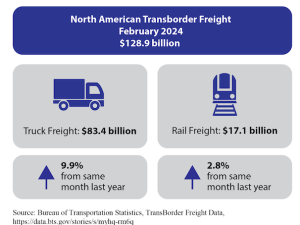AAR Submits Reply Comments to Surface Transportation Board
posted by AJOT | Jan 16 2017 at 09:22 AM | Intermodal
Over Proposed Forced Access Regulation
WASHINGTON, D.C. - The Association of American Railroads (AAR) today responded to comments filed by a group of shippers pushing the Surface Transportation Board (STB) for a new regulation that would force railroads to turn their traffic over to competitor railroads.
In its reply comments, the AAR outlined to the STB how the shipper comments "...do nothing to contradict the conclusion that the Board's proposed reciprocal switching rules are unlawful..." and "...the shippers are using the proposed rule as a means of circumventing existing rate regulation standards."
The filing also states: "...The narrow self-interest of certain shippers in a revenue transfer in their favor - based on government intervention that they would never tolerate in their own industries - cannot offset the multiple flaws in the Board's proposal."
The AAR contends the shipper comments underscore the need for the STB to terminate the proceeding and withdraw its forced access proposal because it violates the STB's governing statute, principles of sound economics, and longstanding policy without any coherent rationale.
AAR President and CEO Edward R. Hamberger said forced access is an ill-conceived approach that compromises the efficiency of the entire network: "This proposed regulation represents a sweeping reversal of the market-based approach favored by Congress over the last three-plus decades," he said.
Hamberger pointed out railroads are capital intensive, and they must spend massive amounts of money on rail infrastructure and equipment so that taxpayers do not have to - a huge public benefit considering the crumbling state of many taxpayer-funded transportation enterprises.
"The impact of the STB's proposed changes would be far reaching, touching consumers, businesses and passenger rail lines from coast to coast," said Hamberger. "The government intervention into railroads' business and operations will inhibit their ability to invest sufficient funds back into the nation's rail networks to expand capacity, while they also meet the needs of a growing economy or further improving safety."
Hamberger again noted existing STB regulations already protect rail shippers as railroads voluntarily switch traffic under the current system, and by law, if freight can get from its origin to final destination only if it is carried by two or more railroads, railroads must cooperate to move the shipments.







